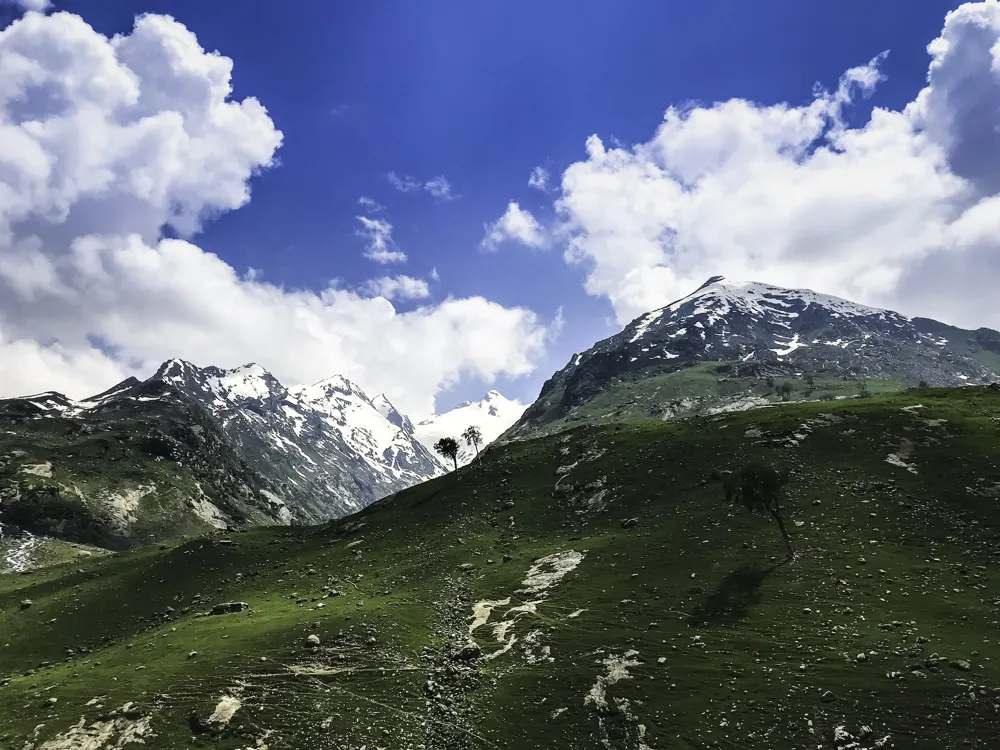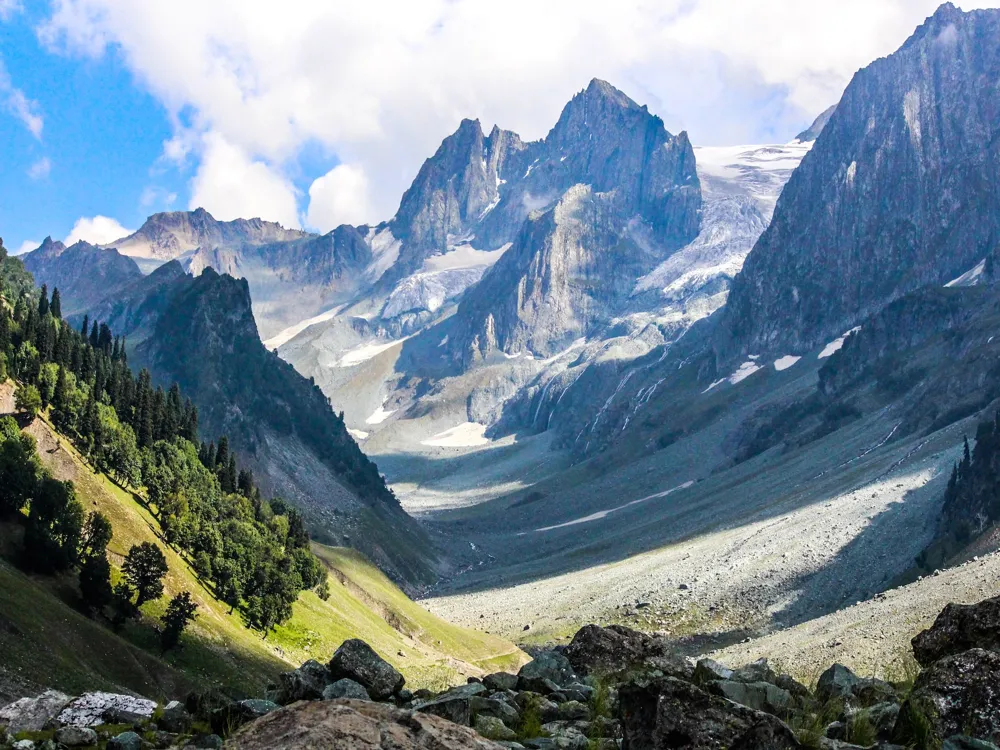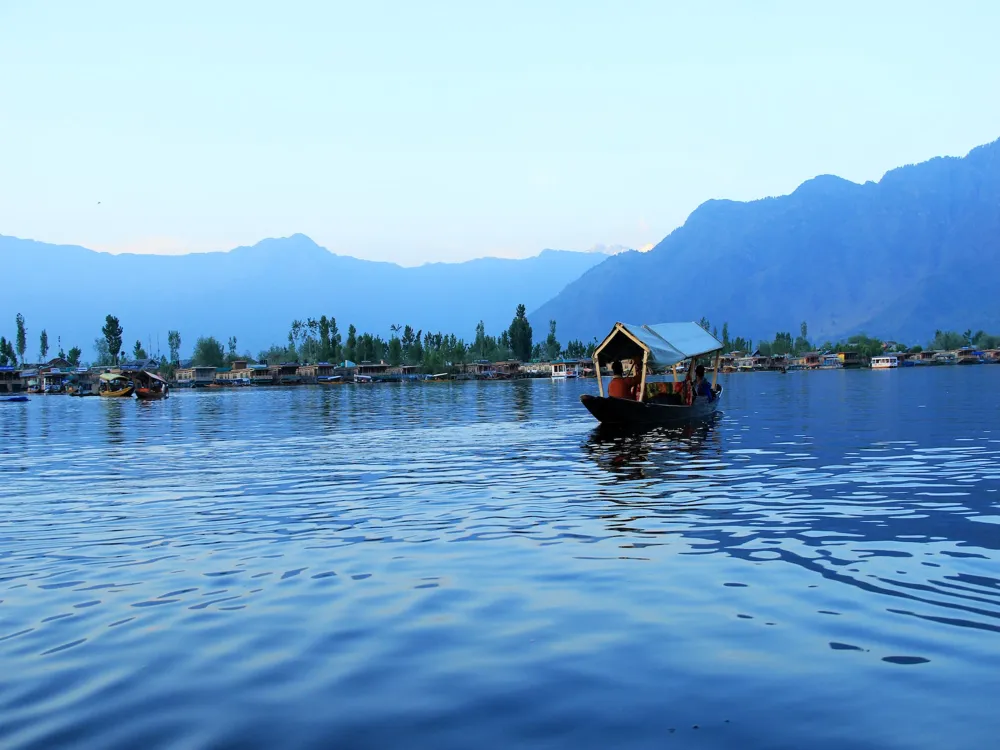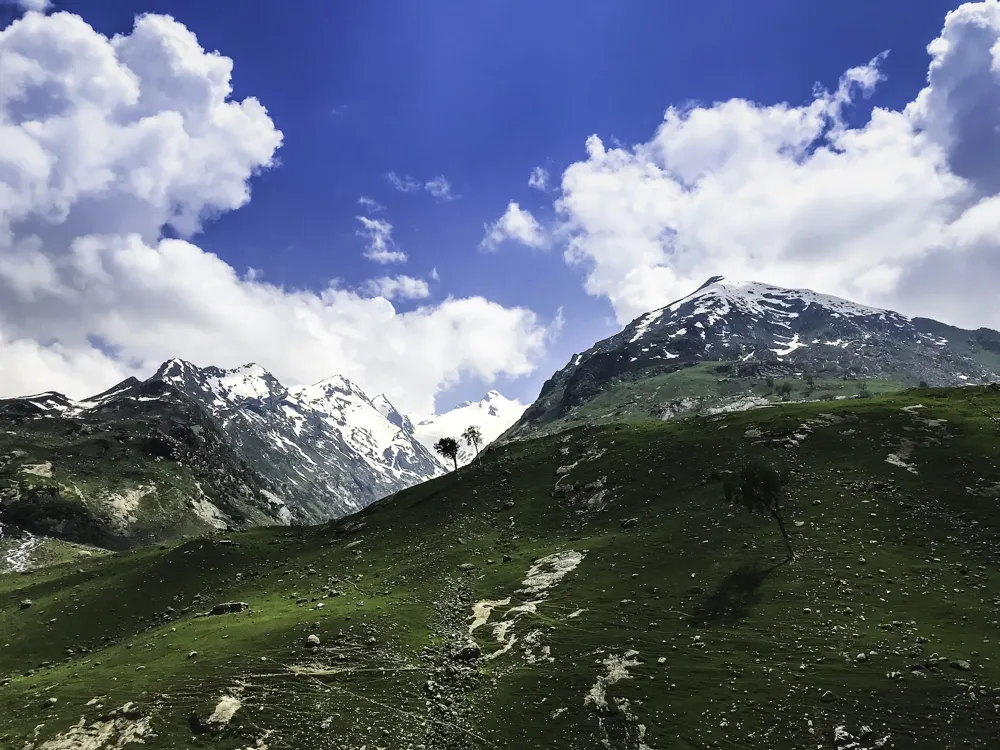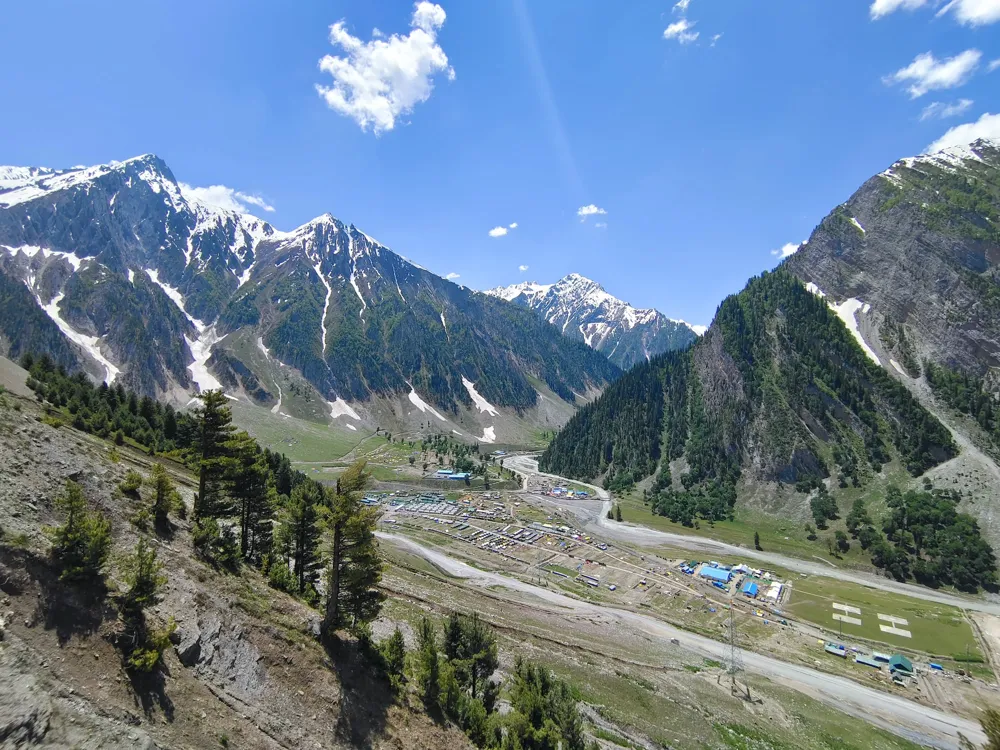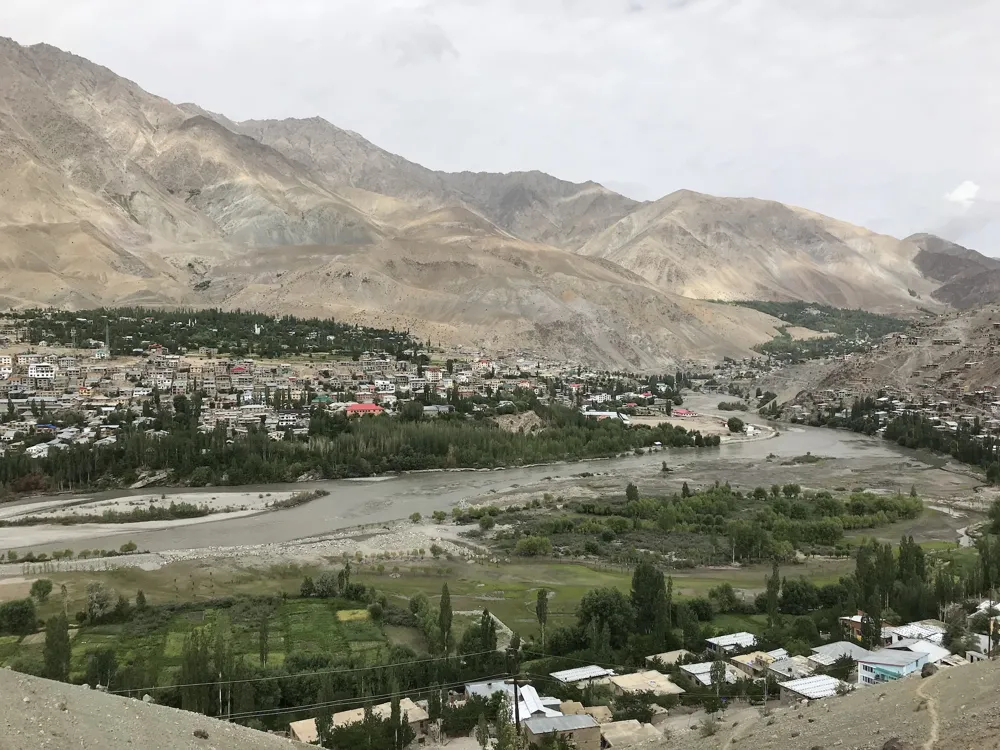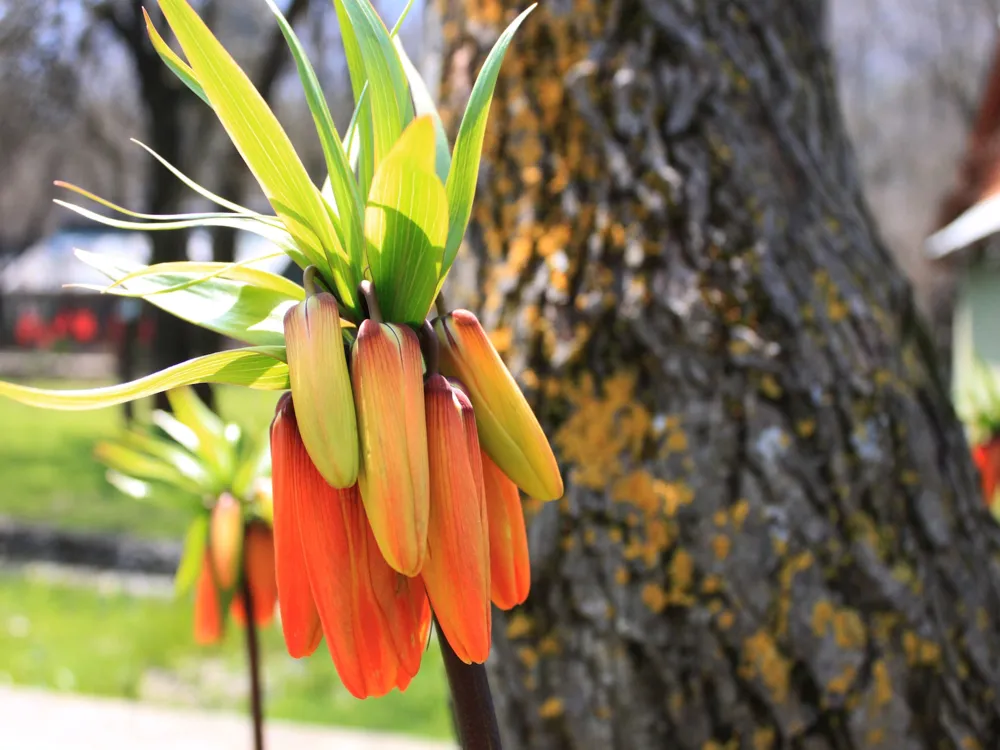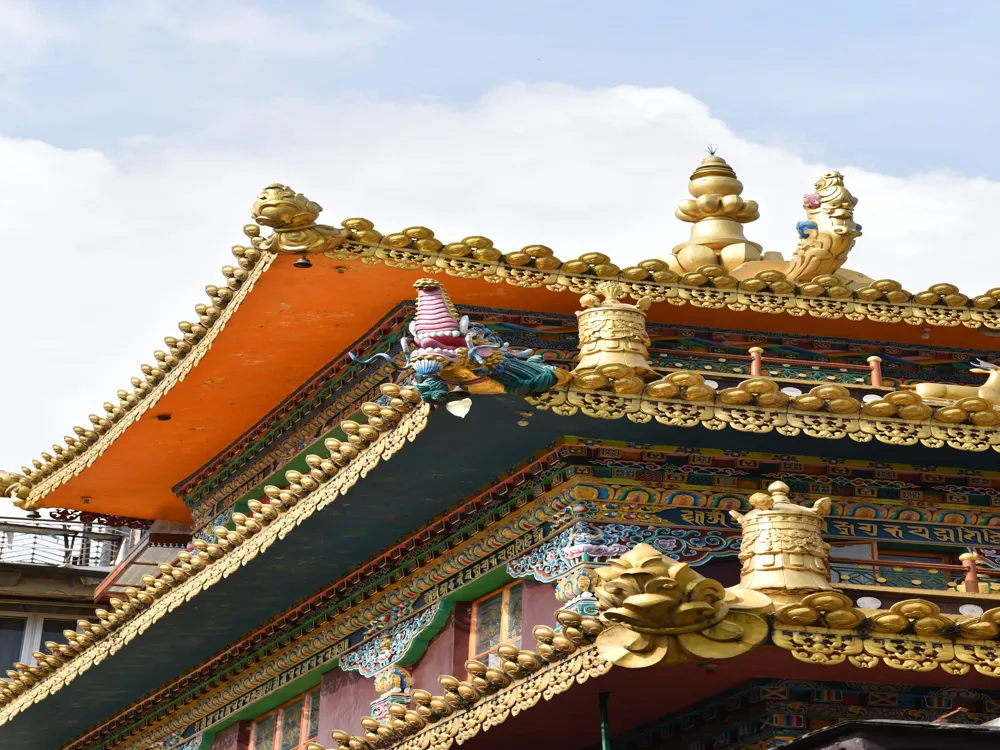Minamarg, a captivating village nestled in the heart of Dras Valley, stands as a testament to nature's splendor and historical richness. Known as the 'Gateway to Ladakh,' Dras offers a blend of breathtaking landscapes and cultural heritage. Minamarg, located in this serene valley, is not just a destination; it's an experience that embodies the spirit of the Himalayas and the ethos of its people. The village's history dates back centuries, marked by various influences, including Tibetan and Indo-Aryan, which have shaped its unique cultural tapestry. The residents, primarily involved in agriculture and animal husbandry, are known for their warm hospitality and rich traditions, which they eagerly share with visitors. Minamarg's strategic location has also played a significant role in the region's history, being a vital link between Kashmir Valley and Ladakh. The architecture of Minamarg is a harmonious blend of Tibetan and indigenous Himalayan styles, reflecting the cultural amalgamation of the region. The buildings in Minamarg are primarily constructed using locally sourced materials, such as stone, wood, and mud, which not only provide durability against harsh weather but also add a rustic charm to the structures. The most prominent feature of Minamarg's architecture is the use of flat roofs, a common trait in mountainous regions, which are used for various purposes, including drying agricultural products and as gathering spaces. Traditional homes in Minamarg are typically two-storied, with the ground floor serving as a space for livestock and storage, and the upper floor reserved for living quarters. Intricately carved wooden windows and brightly colored doors are common, adding an aesthetic appeal to the functional design. The influence of Tibetan architecture is evident in the monasteries and religious shrines scattered throughout the village, characterized by their vibrant colors, intricate murals, and unique geometrical designs. The ideal time to visit Minamarg is from June to September when the weather is most favorable. During these months, the temperatures are comfortable, and the landscape is at its most vibrant, offering spectacular views of the lush greenery and blooming flowers. Respect for local customs and etiquette is paramount when visiting Minamarg. Visitors are advised to dress modestly, avoid public displays of affection, and seek permission before taking photographs of local people or religious sites. Minamarg offers a range of accommodation options, from homestays and guesthouses to more luxurious hotels. Staying in a homestay provides an authentic experience of local life and an opportunity to enjoy traditional Ladakhi hospitality. Given Minamarg's high altitude, visitors should acclimatize properly to avoid altitude sickness. It is also advisable to carry a basic first-aid kit and be aware of the nearest medical facilities. Visitors are encouraged to practice responsible tourism by respecting the environment, avoiding littering, and being mindful of their impact on the local community and natural resources. Reaching Minamarg requires navigating the challenging yet scenic terrain of the Himalayas. The most common route is via Srinagar, which is well-connected by air and road. From Srinagar, visitors can hire a taxi or take a bus to Dras, followed by a short journey to Minamarg. The journey offers panoramic views of the majestic mountains, deep valleys, and the famous Zoji La Pass, making it an unforgettable experience. For those seeking adventure, trekking routes are also available, offering a more immersive experience of the region's natural beauty. Read More:Overview of Minamarg in Dras
Architecture of Minamarg
Tips When Visiting Minamarg
Best Time to Visit
Local Customs and Etiquette
Accommodation Options
Health and Safety
Responsible Tourism
How To Reach Minamarg
Minamarg
Dras
NaN onwards
View dras Packages
Dras Travel Packages
View All Packages For Dras
Top Hotel Collections for Dras

Private Pool

Luxury Hotels

5-Star Hotels

Pet Friendly
Top Hotels Near Dras
Other Top Ranking Places In Dras
View All Places To Visit In dras
View dras Packages
Dras Travel Packages
View All Packages For Dras
Top Hotel Collections for Dras

Private Pool

Luxury Hotels

5-Star Hotels

Pet Friendly






